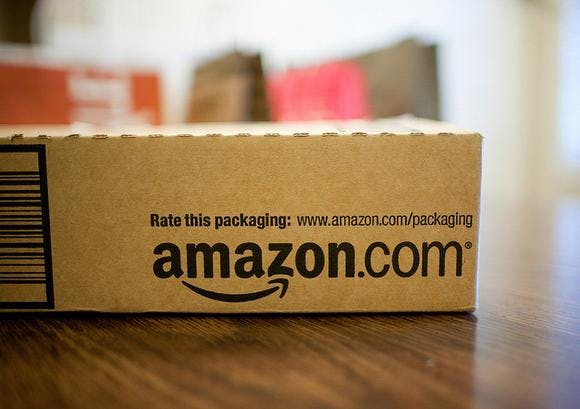The media is scrutinizing Amazon, and for the usual media reasons — they are huge, successful, controversial and very, very different.
They create a lot of jobs — nearly single-handedly redefining the Seattle I grew up in — and yet the jobs they create are as frightening to many outsiders as they are exhilarating to most insiders.
Jeff Bezos and his generals are accused of fostering a hyper-competitive, serve-customers-at-all-costs, overly male “bad culture.” But most cultures aren’t objectively “good” or “bad.” What’s works for one company won’t work for another.
Winning in business, and in any effort is really, about how culture aligns and interacts with goals, and fits with the competitive realities of markets.
The late Claremont management guru Peter Drucker famously observed that, “Culture eats strategy for breakfast” — drawing much-needed attention to the value of culture. I would offer a slightly different view (and I think the late Mr. Drucker would agree): Culture and strategy are two strands of the same DNA, the blueprint for whatever peaks and valleys lie ahead. They must intertwine perfectly to pass on the success traits of the organization. Neither works alone.
A culture that’s not right for everyone
Amazon’s culture is aligned around delighting its customers. This has been the company’s North Star since it was a mere stream. Customers explicitly trump feelings — and even profits. Amazon understands operational excellence.
Employees are data-driven and performance-focused. Because they compete with WalMart, Microsoft, and thousands of other retail, tech and media innovators big and small — they have to be. I’ve never worked there, so I can’t separate the criticisms into fair and foul, but I know this. They have a firm grasp of competitive market reality.
At Amazon, if you fail, do it quickly. Adapt and attack. They are like the Navy Seals of enormo-tech. Prototypical Amazonians push boundaries. They love their work. They sacrifice for their jobs. They want to be surrounded by others who compete like they do. Perhaps not all are prototypical.
But it’s not for everyone. I’ve met ex-execs who had to leave, wealthy but physically and emotionally depleted. This happens at a lot of companies. U.S. productivity has gone up 75 percent since 1973. In the same time frame, real wages have risen only 9 percent.
Some of this is technology-driven. But the average U.S. work day in 2015 has risen to 47 hours. Frankly, my work week is longer than that, and I like it that way.
So what’s the problem? Employers everywhere are struggling to get the Navy Seal passion and excellence without the real (or perceived) brutality. We, as employers, might actually have to choose.
It’s about being upfront with your workforce
Employers owe it to their people to “speak plainly” — to be intentional and up-front about what we expect from employees and what they can expect from us in return. If it’s 70 hours a week for $100k with the opportunity to work on a cool challenge, say it and let the market decide. Maybe hours and effort aren’t specified, but outcomes are. Let them know.
What could happen if being plainspoken reveals some results-at-all-costs realities? Candidate pools may dry up, employers may lose some game-changing innovators, or worst of all for customer-obsessed companies like Amazon, customer perception could turn sour.
Or this could be a rallying cry to be more Amazon-ish. To win bigger and better. We’ll see.
But if this public scrutiny hurts Amazon’s business, I would bet money they will adapt — as they always have. I’ll also wager that the adaptation will be hard. Culture is not only important, it requires hard, relentless, intentional work.
In other words, staying the course with the culture-strategy DNA that’s made them a $90 billion revenue company that employs more than 150,000 people makes market sense — unless or until it doesn’t.
There are other retailers and tech companies that think differently about their DNA. Some companies focus on whole-person well being as a means to unlock passion and purpose, to help people connect and grow, to drive resilience and teamwork and to keep people around (at work and on Earth) longer.
This is definitely in play at Limeade where often the most innovative ideas occur not when employees are grinding away at work, but rather on walks, in nature, at lunch with colleagues. They happen in life, at odd times, when the energy is flowing. It’s not hard to give the freedom and support this innovation requires.
Choosing where to work with sense of purpose
According to a recent Quantum Workplace study, employees who feel their employer cares about their well-being are 10 times less likely to be hostile toward their employer. We hear some voices of hostility from this recent media storm, mainly toxic feedback from former Amazon employees who didn’t feel cared for. (I would guess that a data-driven company like Amazon knows exactly what percentage of current high-performers feel this way in real time. If they don’t today, they will).
The Amazon culture seems intense. Perhaps this is why it has created tens of thousands of jobs, transformed nearly every market it’s entered, and delighted millions of customers along the way. And all that wealth.
Could they achieve as much with a different employee approach?
So, what does Amazon need? Maybe a willingness to hear dissent, a decisive response, and a microscope on the data from customers. Are they sending a message about culture with their checkbooks? Maybe Amazon has most of what they need already.
We’ll see. As a competitor, underestimate them at your peril. As an employer, know that your most passionate employees choose where they can work with a sense of purpose.
